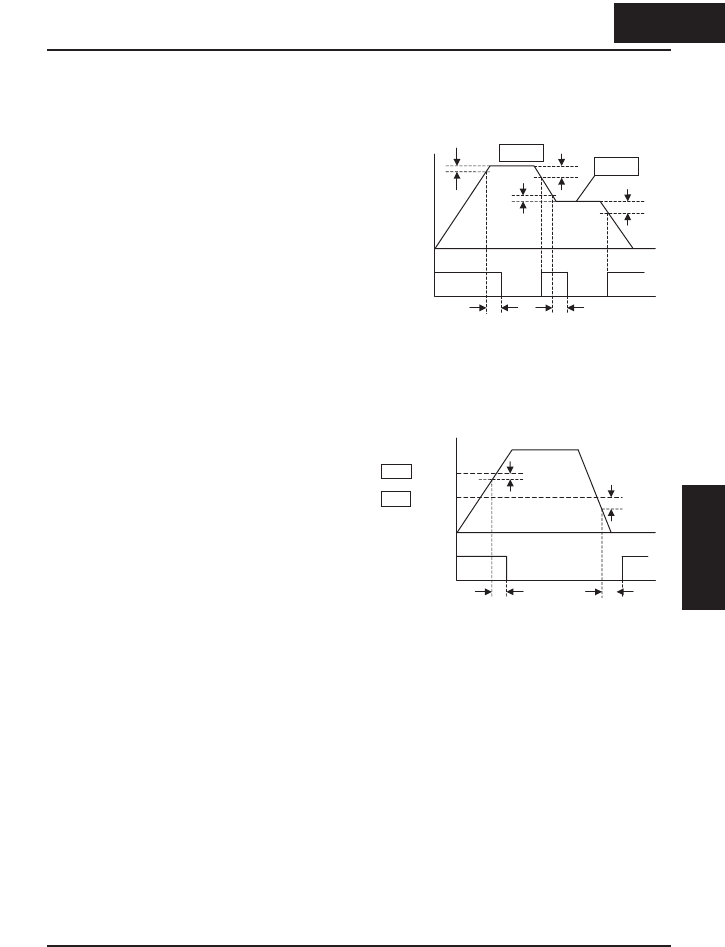
Frequency arrival output [FA1] uses the
standard output frequency (parameter
F001) as the threshold for switching. In
the figure to the right, Frequency
Arrival [FA1] turns ON when the
output frequency gets within
Fon
Hz
below or
Fon
Hz above the target
constant frequency, where
Fon
is 1% of
the set maximum frequency and
Foff
is
2% of the set maximum frequency. This
provides hysteresis that prevents
output chatter near the threshold value.
The hysteresis effect causes the output
to turn ON slightly
early
as the speed
approaches the threshold. Then the
turn-OFF point is slightly
delayed
. The
timing is further modified by a small 60
ms delay. Note the active low nature of
the signal, due to the open collector
output.
Frequency arrival output [FA2] works
the same way; it just uses two separate
thresholds as shown in the figure to the
right. These provide for separate
acceleration and deceleration thresholds
to provide more flexibility than for
[FA1]. [FA2] uses C042 during
acceleration for the ON threshold, and
C043 during deceleration for the OFF
threshold. This signal also is active low
and has a 60 ms delay after the
frequency thresholds are crossed.
Having different accel and decel
thresholds provides an asymmetrical
output function. However, you can use
equal ON and OFF thresholds, if
desired.
441
Operations and
Monitoring
FA1
signal
Output
freq.
Fon
F001
F001
60ms
Foff
Fon
ON
60ms
Foff
ON
0
FA2
signal
Output
freq.
thresholds
C042 accel.
60ms
ON
60ms
0
C043 decel.
Fon
Foff
Fon=1% of max. frequency
Foff=2% of max. frequency
Fon=1% of max. frequency
Foff=2% of max. frequency
4 41
Operations and
Monitoring


















